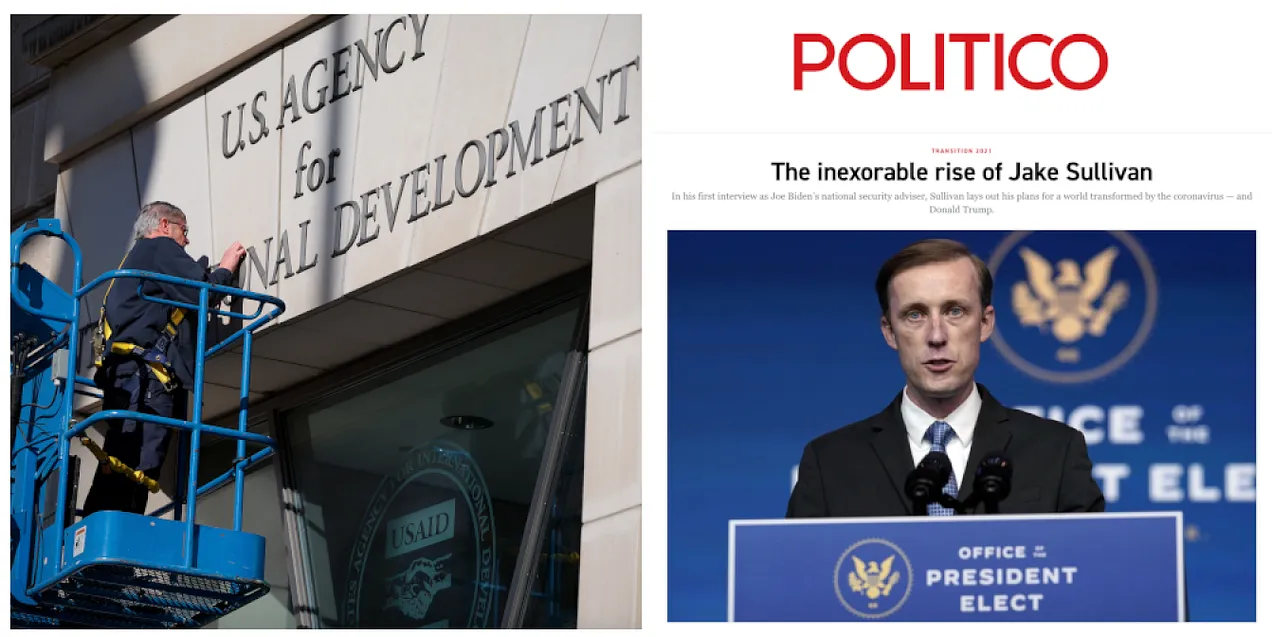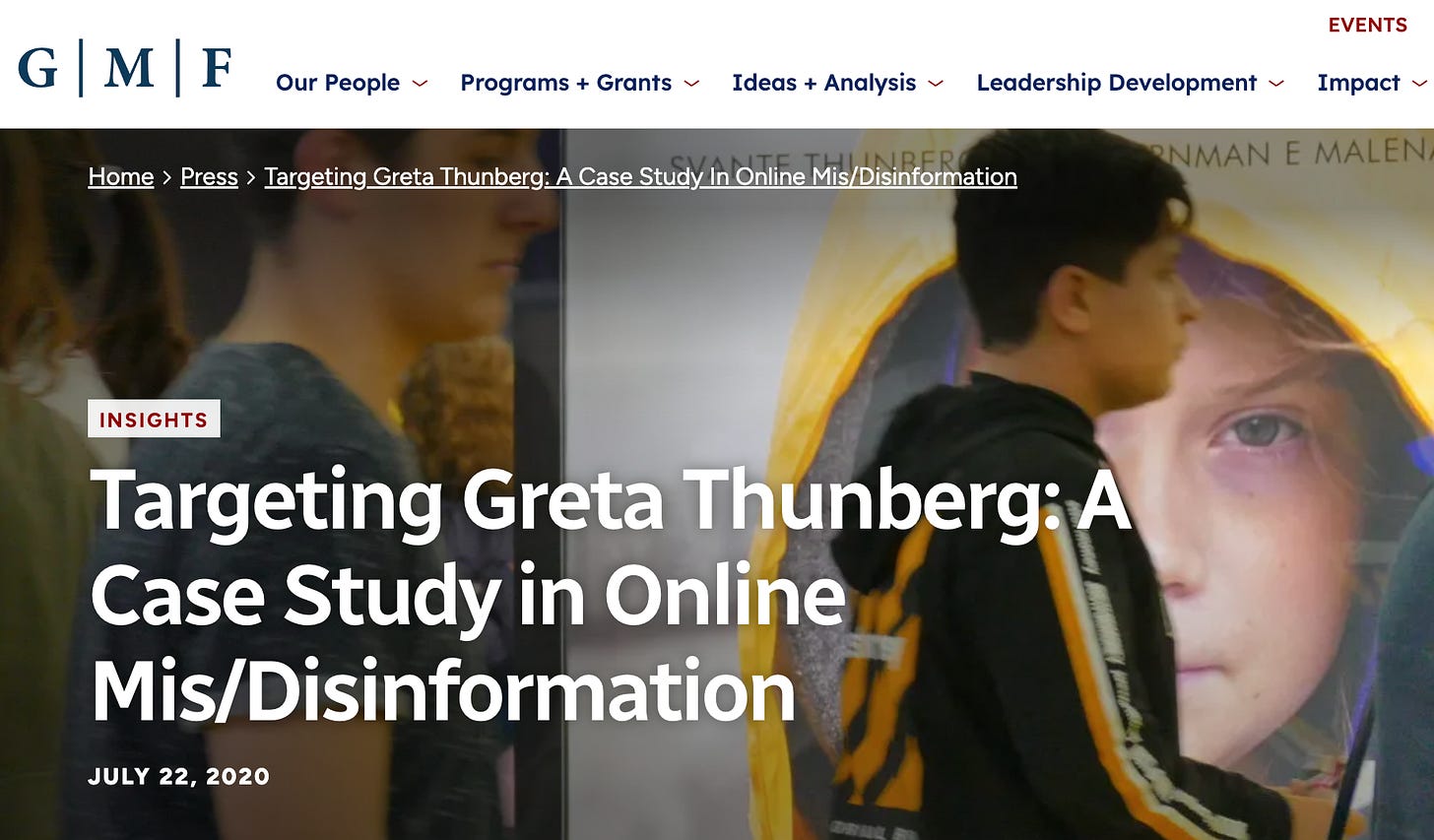
The Media is Busted
And will soon die.
From the New York Post:
The White House said Wednesday that federal agencies are in the process of terminating expensive contracts with Politico after Elon Musk, leader of the Department of Government Efficiency cost-cutting initiative, called them a “wasteful” use of taxpayer money… About $8.4 million in taxpayer funds were obligated to Politico over the 12 months ending Sept. 30, 2024…
I held off on writing about the “payoffs”-to-media story, for fear I might say too much. The betrayal I feel is almost too vast to express. It’s bad enough that I grew old in this business watching it break its own rules, screw up, and smear its best practitioners, many of whom were friends or mentors. Now, at a critical juncture, the smearers are playing victim.
It’s the last straw. The legacy press needs to be put out of its misery:
Some who should know better are pretending this isn’t a story. Others are trying to wordsmith the problem away. The note from Editor-in-Chief John Harris is the same insult handed out recently by the likes of Newsguard (“We do not receive any government funding”) and Stanford’s Internet Observatory (no government funds were “used to study the 2020 election or to support the Virality Project”). True, they have sizable publicly-listed contracts or grants from the DoD or National Science Foundation, but you can’t call that receiving money. Politico spelled out the concept with gusto. “We have never received any government funding — no subsidies, no grants, no handouts,” Harris wrote, adding that while government agencies subscribe, “this is not funding. It is a transaction.”
Oh, a transaction. Much different! You should be insulted that you’re asked to take this seriously, that they think audiences are that dumb. Same with the Reuters headline, “News Organizations Reject Trump Accusations of a USAID Media Payoff.”
Media Rejects Criticism of Media. Hot off the presses, that one! They went on, denouncing “unsubstantiated accusations by President Donald Trump and right-wing influencers that the U.S. Agency for International Development paid millions of taxpayer dollars to newsrooms in exchange for coverage favoring the Democratic Party.”
It’s not just “right-wing influencers.” People across the spectrum are disgusted. Obviously no one can “substantiate” that millions in fees were made “in exchange for coverage.” The money speaks for itself, as a Reuters reporter should know. If your bottom line is anchored by ongoing payments for an overpriced boutique product that essentially only institutions can afford, you’re in a particular kind of business. But that’s not even the issue. These cash cushions are just last data points on a list of revelations, exposing legacy press as a small part of an endless information operation, churning out manufactured political narratives.
The problem isn’t that Politico “sells” $8 million a year in services to agencies like USAID and the DoD and the Departments of Energy and Commerce and the Interior and so on. It’s that when a USAID contractor like Peter Daszak’s EcoHealth Alliance gets dragged into a public controversy as it did when Anthony Fauci’s emails became public in 2021, Politico instantly ran “Attacks on Fauci grow more intense, personal and conspiratorial,” a story containing the following elements:
- Described EcoHealth Alliance as “a nonprofit studying coronavirus origins,” mentions NIH funding but not the USAID PREDICT project that linked American researchers to the Wuhan Institute of Virology;
- Said Fauci’s emails had become a “a new touchstone for conspiracy theorists,” and that Daszak thanked Fauci for “dismissing lab leak theories early in the pandemic.”
- Quoted “GMF Digital,” a suite of social media trackers formed by the same German Marshall Fund that created the infamous Hamilton 68 dashboard, as saying “Targeting Fauci erodes trust in scientific institutions”;
- Quoted the Bully Pulpit Initiative, founded by Barack Obama chief digital strategist Andrew Bleeker, in saying “Republicans or conservative interests” spent over $300,000 in a month on ads attacking Fauci;
- Quoted Ron Klain, Joe Biden’s chief of staff, as saying “No one had more credibility with the public” than Fauci;
- Quoted “Priorities USA, a top Democratic super PAC,” as saying Republicans were trying to “divide and distract” Americans with “misinformation.” (This was a story about Fauci’s real, FOIA-produced emails).
Politico in a short period of time ran scads of articles pooh-poohing the lab leak theory as a Trumpian fantasy, and spent years fellating Fauci and “profiling” anyone who dared criticize Daszak or EcoHealth. This is irritating, but one could chalk it up to organic editorial disposition. The real issue is the sourcing merry-go-round.
Kentucky Senator Rand Paul was also a villain in the “Attacks on Fauci” story, when “GMF Digital” said “attacks” on the poor doctor “emanated” from him as well as “Ben Shapiro, Donald Trump Jr., Steven Crowder, Dan Bongino and Newsmax.” GMF Digital funders included the Rockefeller Foundation, the EU, NATO, and the DoD. Its publicly funded defense of Fauci was done much like its “Targeting Greta Thunberg” study, which identified “five key narratives” Thunberg’s detractors used, including one titled, “Soros.” GMF in its analysis of Thunberg didn’t mention that Soros’s Open Society Foundation was a primary donor, and Politico in its story about Fauci didn’t mention that it had a formal “digital media partnership” with GMF Digital.

To put a bow on it all, Politico didn’t mention USAID was a customer, or that it formally partnered with the Rockefeller Foundation-funded GMF, when it ran a 2022 op-ed on Covid by Rajiv Shah, president of the Rockefeller Foundation and former administrator of… USAID. Does your head hurt yet? This is before we get to Politico promoting the Election Integrity Partnership (in stories never mentioning government partners like the State Department or CISA) or its later stories defending CISA (in which it doesn’t mention the Election Integrity Partnership) or even the Global Engagement Center (in which it doesn’t mention the high ratings Politico won from GEC’s contractors). Then there’s the space it awarded to Newsguard, which consistently rated Politico a virtually perfect news source, and who cares if they both claim the same government agencies as huge customers? Not relevant.
Newsguard this week was amusingly un-mentioned by Microsoft, which apparently cut ties. In a delicious irony, the company that throughout its existence systematically sucked ad revenues from government–critical media organizations last month sent its not-at-all-pompous co-founder Stephen Brill (he wrote a book called The Death of Truth!) to whine in Politico about incoming regulators who, Brill moaned, said “we are political hacks who need to be curbed.” Why should Brill care? After all, he doesn’t depend on public money, right?
The news became unreadable when news agencies stopped revealing its subterranean connections. The state is a huge customer, the state pays contractors to suppress our competitors, the state funds the think-tanks who give us our quotes, the state funds the research we cite, the state leaks us true material, the state leaks us false material. There are pornographic terms for such interlocking ties, but news organizations don’t find them necessary to mention in the journalism context. After all, they’re just transactions. What could be wrong with those?
These organizations are dead. They just don’t know it yet.



